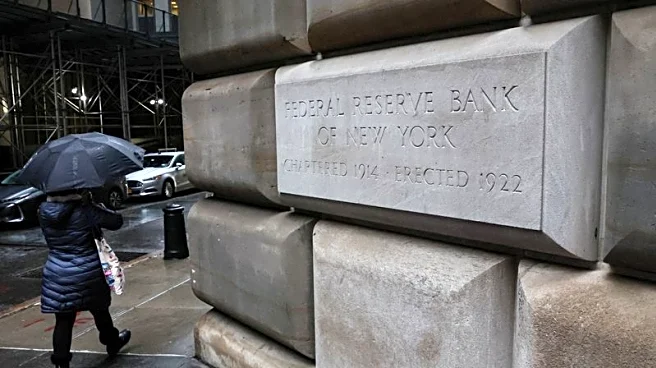What's Happening?
A recent survey conducted by Talker Research on behalf of Scenic Group has highlighted a phenomenon known as 'travel dysmorphia' affecting nearly seven in ten Americans. This term describes the feeling of inadequacy regarding one's travel experiences compared to others. The survey, which included 2,000 U.S. adults across different generations, found that less than half of the respondents are satisfied with their travel history. Social media plays a significant role in this sentiment, with over a third of participants citing travel posts from friends and family as triggers. Gen Z, in particular, feels the impact of social media, with 47% reporting that influencer content contributes to their travel dysmorphia. The study also revealed that only 10% of Americans feel they have achieved their travel goals, with common obstacles being cost, work commitments, and family responsibilities.
Why It's Important?
The findings of this survey underscore the growing influence of social media on personal perceptions and aspirations, particularly in the realm of travel. As travel becomes a marker of success and fulfillment, many Americans feel pressured to meet certain travel milestones. This pressure can lead to dissatisfaction and a sense of falling behind in life. The shift in mindset towards more attainable travel goals reflects a broader trend of prioritizing meaningful experiences over aspirational bucket lists. This change could impact the travel industry, as consumers seek more personalized and achievable travel options. It also highlights the need for addressing the emotional and psychological effects of social media on individuals' perceptions of their life achievements.
What's Next?
The survey indicates a shift in travel preferences, with Americans moving towards smaller, more attainable trips. Baby boomers are focusing on these types of trips, while Gen X is choosing meaningful destinations. Gen Z is prioritizing travel with friends and family, and millennials are aiming to maximize each travel experience. In the next five years, nearly half of the respondents hope to visit new destinations. This trend suggests potential growth in the travel industry for experiences that cater to these evolving preferences, such as beach vacations, road trips, and cruises. Travel companies may need to adapt their offerings to meet the demand for more personalized and meaningful travel experiences.
Beyond the Headlines
The concept of a 'Living List' is emerging as an alternative to the traditional 'bucket list,' encouraging individuals to integrate travel into their lives now rather than postponing it for the future. This shift in mindset could lead to a cultural change in how travel is perceived and prioritized. It also raises ethical considerations regarding the impact of social media on personal aspirations and the pressure it creates to conform to certain lifestyle standards. As Americans rethink what meaningful travel looks like, there may be a broader societal movement towards valuing experiences over material achievements.











